Zombies – those reanimated, decaying creatures that hunger for human flesh – have clawed their way out of the darkness of folklore and into the mainstream of our culture. From blockbuster movies and TV shows to video games and even academic discussions, zombies are everywhere. But have you ever wondered why we are so utterly obsessed with these undead horrors? In this blog post, we will dissect the fascinating phenomenon of our zombie obsession, exploring the psychological, historical, and cultural factors that fuel this enduring fascination. Strap in, because we’re about to dive headfirst into the zombie apocalypse!
Unleash the Undead: Explore Zombie Realms in a New Tab!
1. The Thrill of the Unknown
 Zombies are enigmatic creatures. They embody the unknown, the unexplainable, and the terrifying. It’s this very uncertainty that draws us in. Our human nature has an insatiable appetite for mysteries, and zombies serve up a tantalizing platter of unanswered questions. Where do they come from? What are the limits of their abilities? How can they be stopped? These uncertainties keep our brains firing on all cylinders, making the zombie genre an intellectual playground.
Zombies are enigmatic creatures. They embody the unknown, the unexplainable, and the terrifying. It’s this very uncertainty that draws us in. Our human nature has an insatiable appetite for mysteries, and zombies serve up a tantalizing platter of unanswered questions. Where do they come from? What are the limits of their abilities? How can they be stopped? These uncertainties keep our brains firing on all cylinders, making the zombie genre an intellectual playground.
2. Fear and Catharsis
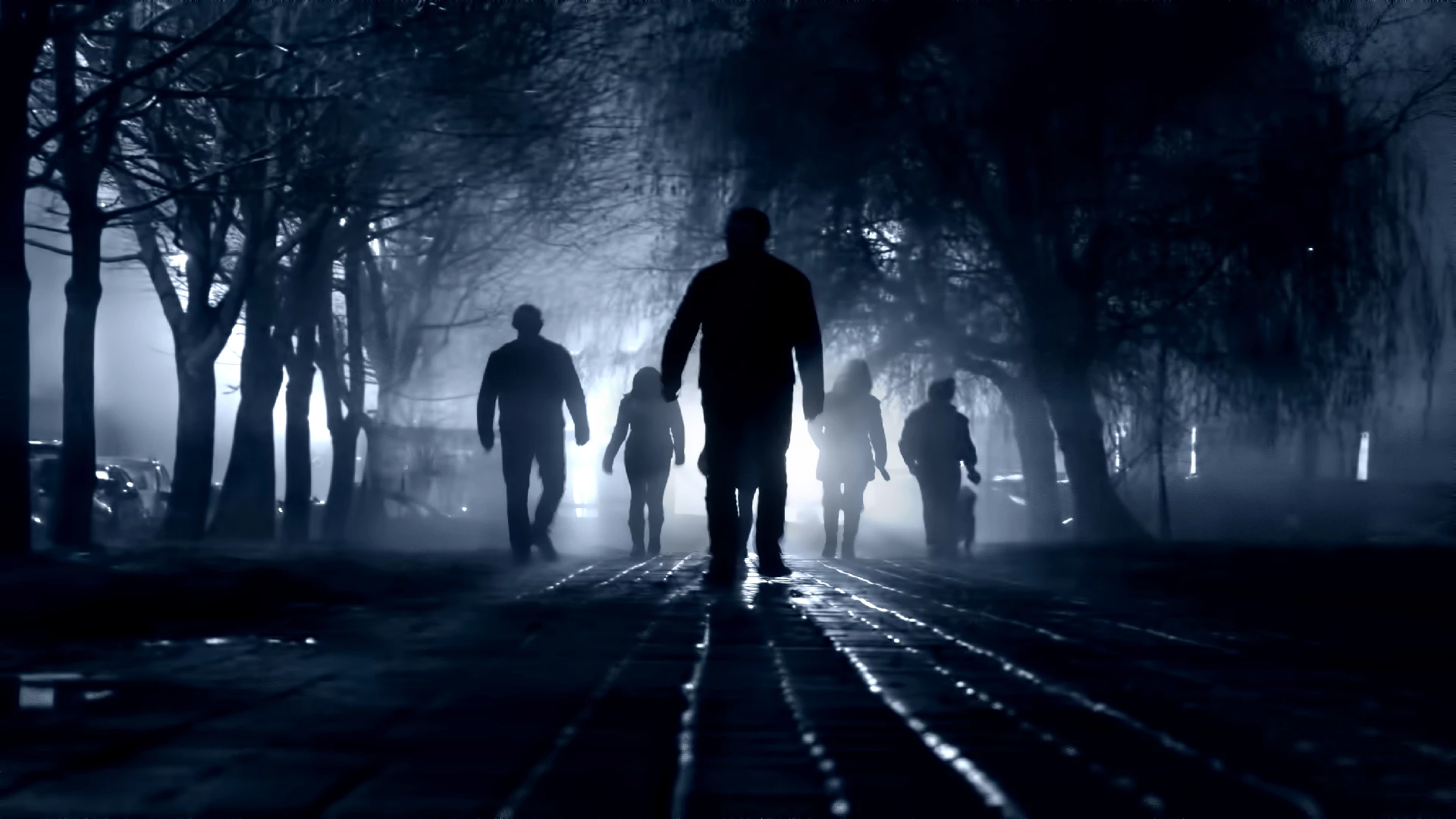 Horror, in all its forms, provides a unique emotional experience. It allows us to confront our deepest fears in a controlled environment, offering a sense of catharsis. The zombie genre is no exception. As we watch survivors struggle against overwhelming odds, we vicariously experience their fear and triumph. This emotional rollercoaster not only entertains but also helps us process our own fears in a safe way.
Horror, in all its forms, provides a unique emotional experience. It allows us to confront our deepest fears in a controlled environment, offering a sense of catharsis. The zombie genre is no exception. As we watch survivors struggle against overwhelming odds, we vicariously experience their fear and triumph. This emotional rollercoaster not only entertains but also helps us process our own fears in a safe way.
3. A Reflection of Society
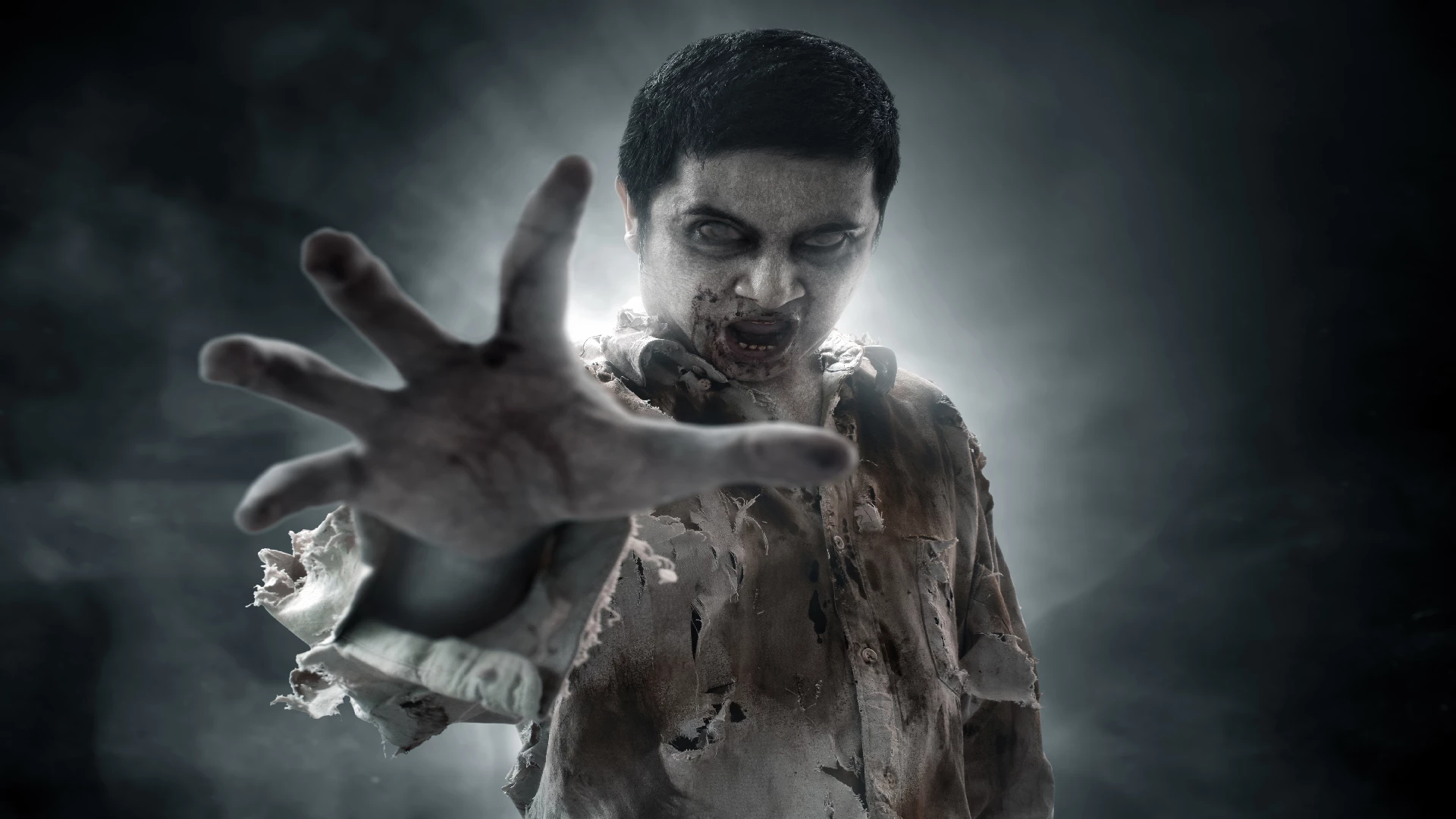 Zombies, surprisingly, can be mirrors to society’s anxieties and concerns. Throughout history, they’ve symbolized different societal issues. For instance, in George A. Romero’s classic film “Night of the Living Dead” (1968), zombies have been interpreted as a reflection of racial tensions and societal divisions during the civil rights movement. In more recent iterations like “World War Z” (2013), they represent the fear of a global pandemic. Zombies adapt to reflect our current societal fears, which makes them eerily relevant.
Zombies, surprisingly, can be mirrors to society’s anxieties and concerns. Throughout history, they’ve symbolized different societal issues. For instance, in George A. Romero’s classic film “Night of the Living Dead” (1968), zombies have been interpreted as a reflection of racial tensions and societal divisions during the civil rights movement. In more recent iterations like “World War Z” (2013), they represent the fear of a global pandemic. Zombies adapt to reflect our current societal fears, which makes them eerily relevant.
4. A Dash of Apocalyptic Excitement
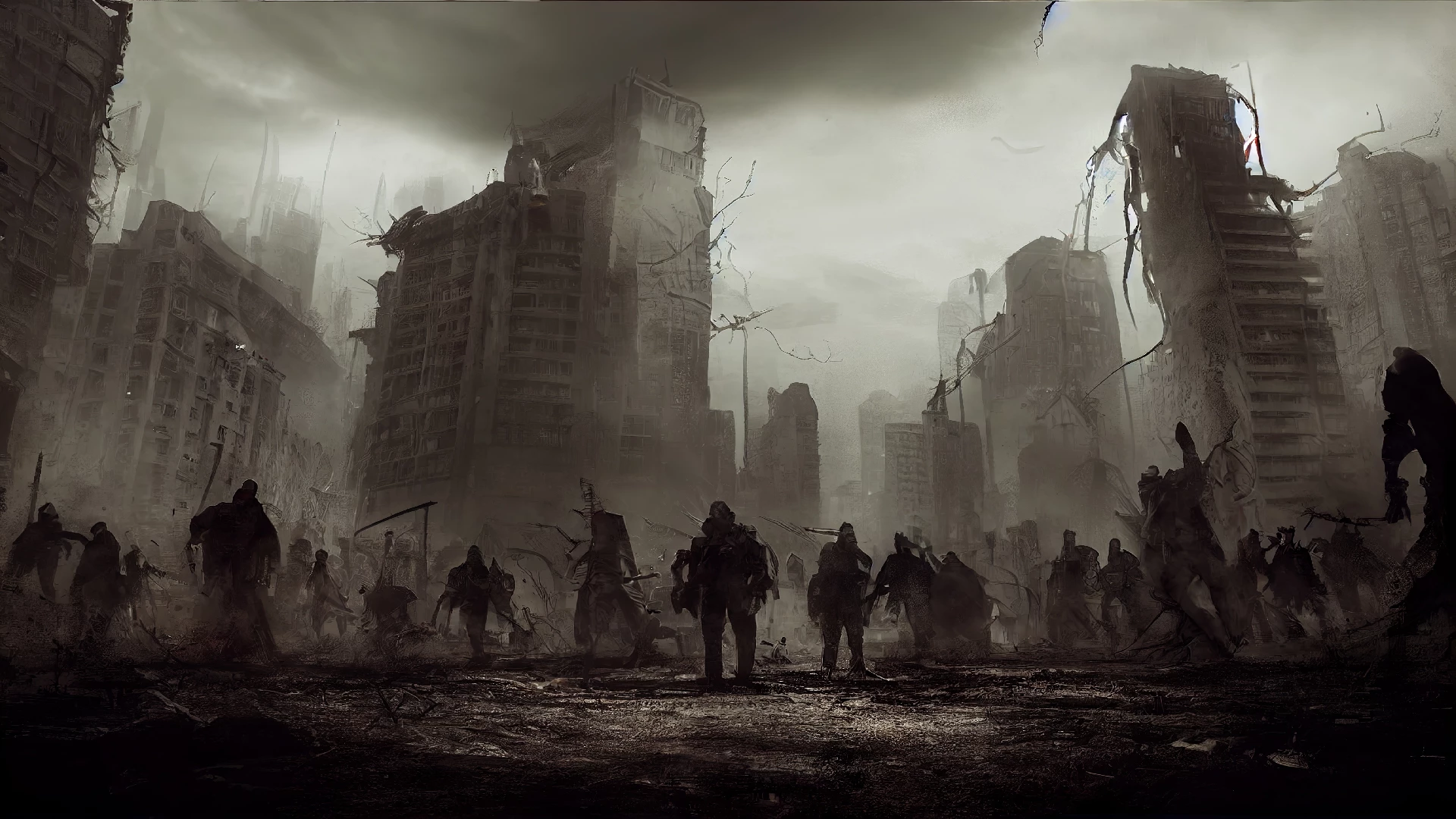 The allure of post-apocalyptic scenarios is undeniable. Zombies serve as a catalyst for the collapse of society, plunging us into a world where the rules have changed, and survival is paramount. This setting presents us with an intriguing what-if scenario that taps into our survival instincts. How would we fare in a world without order? Could we adapt and overcome? These questions fuel our fascination with the undead apocalypse.
The allure of post-apocalyptic scenarios is undeniable. Zombies serve as a catalyst for the collapse of society, plunging us into a world where the rules have changed, and survival is paramount. This setting presents us with an intriguing what-if scenario that taps into our survival instincts. How would we fare in a world without order? Could we adapt and overcome? These questions fuel our fascination with the undead apocalypse.
5. The Power of Scientific Plausibility
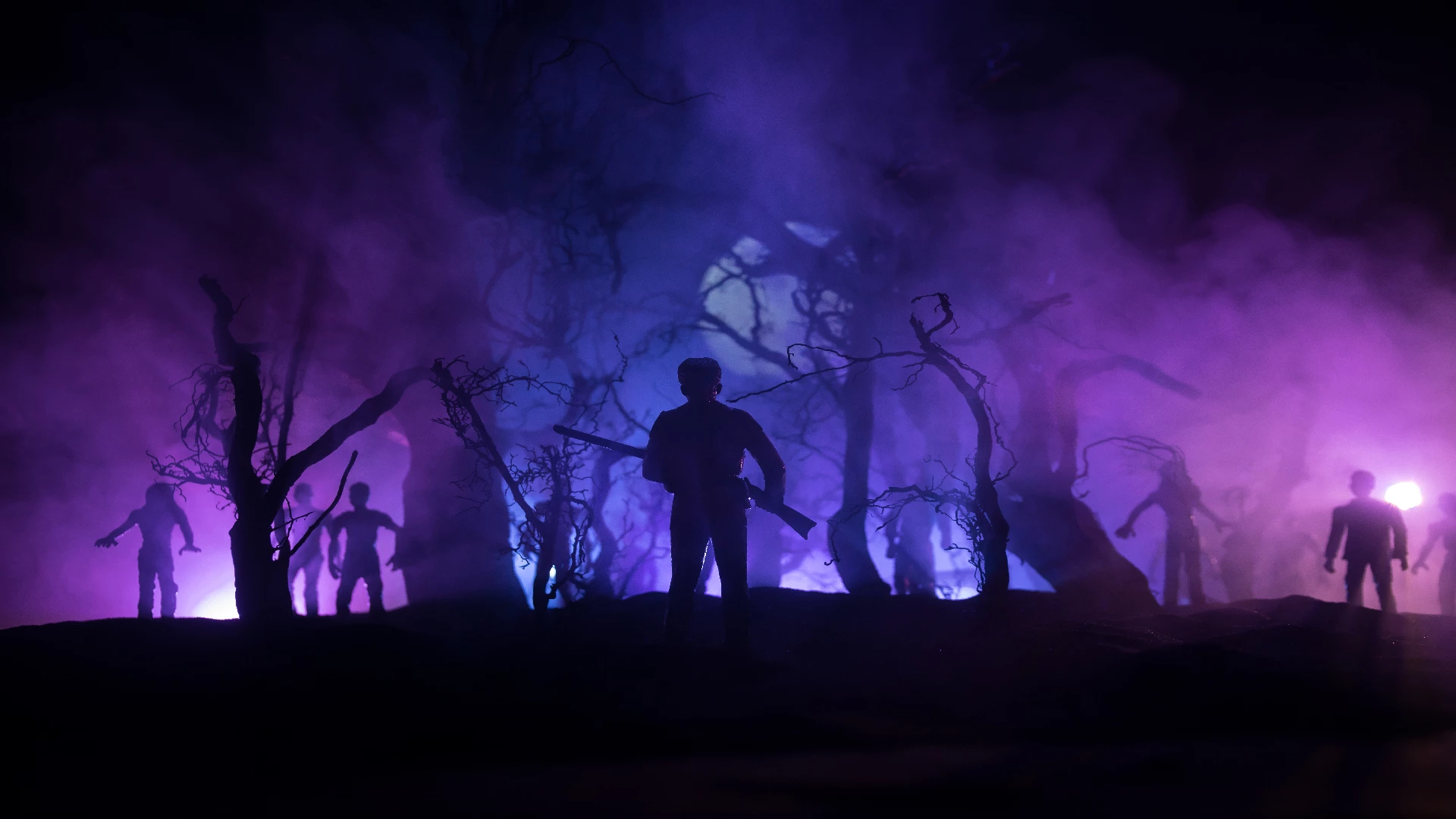 Unlike vampires or werewolves, zombies seem oddly plausible. In a world filled with infectious diseases, genetic experiments, and artificial intelligence, the idea of a virus or pathogen causing a zombie outbreak doesn’t feel entirely far-fetched. This scientific plausibility adds an extra layer of intrigue, making us contemplate the “what if” scenarios that could lead to a real-life zombie outbreak.
Unlike vampires or werewolves, zombies seem oddly plausible. In a world filled with infectious diseases, genetic experiments, and artificial intelligence, the idea of a virus or pathogen causing a zombie outbreak doesn’t feel entirely far-fetched. This scientific plausibility adds an extra layer of intrigue, making us contemplate the “what if” scenarios that could lead to a real-life zombie outbreak.
6. A Global Cultural Phenomenon
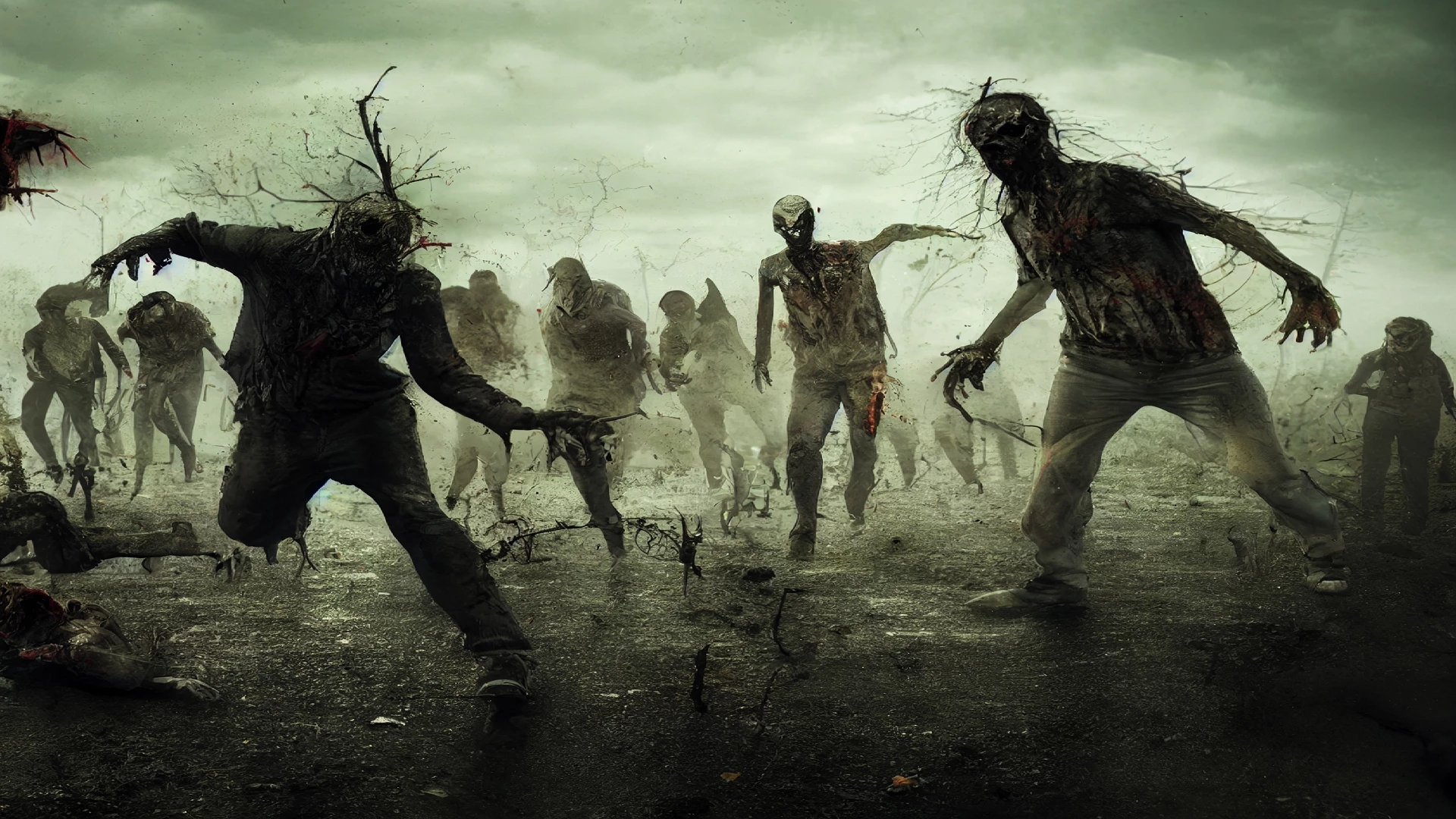 The fascination with zombies isn’t limited to a single culture or region. It’s a global phenomenon, transcending borders and languages. This shared interest connects people from all walks of life, creating a sense of community among fans. The widespread popularity of zombie-themed events, conventions, and merchandise further solidifies its place in our global culture.
The fascination with zombies isn’t limited to a single culture or region. It’s a global phenomenon, transcending borders and languages. This shared interest connects people from all walks of life, creating a sense of community among fans. The widespread popularity of zombie-themed events, conventions, and merchandise further solidifies its place in our global culture.
7. Immersive Entertainment
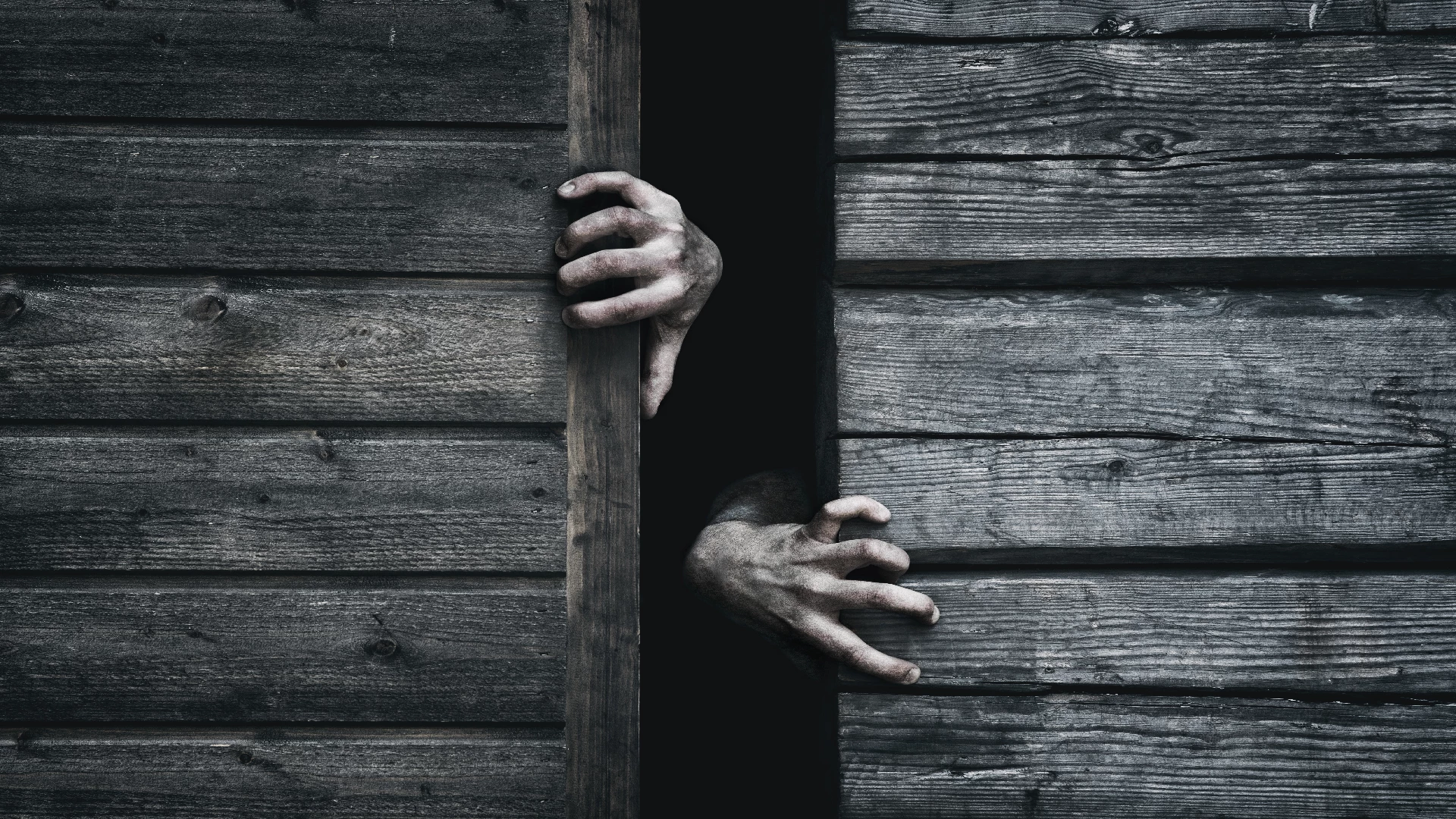 Modern technology has taken our zombie obsession to new heights. Video games like “Resident Evil” and “Left 4 Dead” plunge players into intense, immersive experiences where they must strategize and fight their way through hordes of the undead. Virtual reality (VR) experiences allow us to step into a zombie-infested world, heightening the fear and excitement to unprecedented levels.
Modern technology has taken our zombie obsession to new heights. Video games like “Resident Evil” and “Left 4 Dead” plunge players into intense, immersive experiences where they must strategize and fight their way through hordes of the undead. Virtual reality (VR) experiences allow us to step into a zombie-infested world, heightening the fear and excitement to unprecedented levels.
8. The Zombie Survival Fantasy
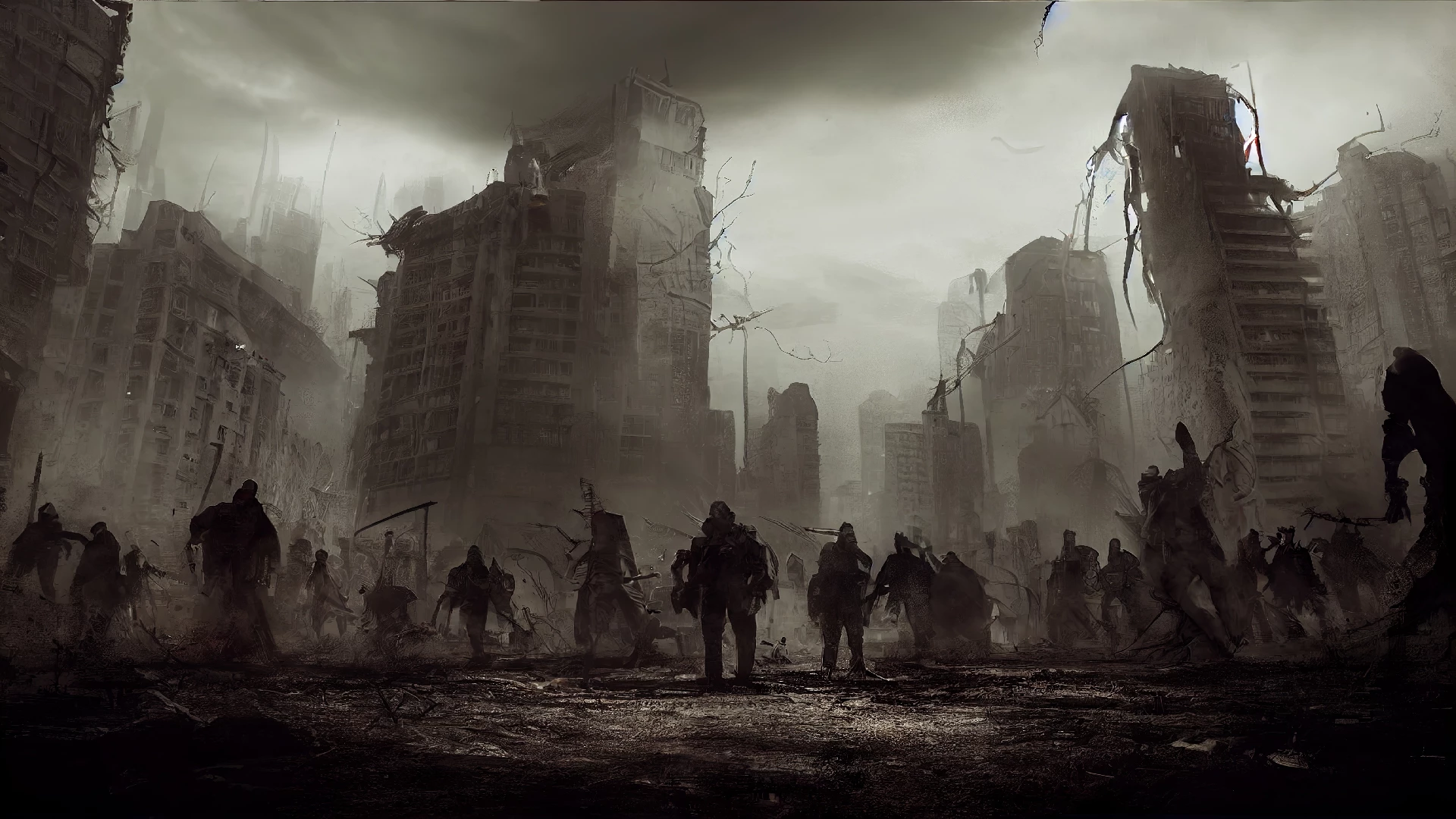 The concept of the “zombie apocalypse” provides a unique form of escapism. It’s a scenario where our ordinary lives are stripped away, and we are thrust into a high-stakes world where our survival skills are put to the test. This fantasy allows us to momentarily escape the mundane and envision a life filled with action, adventure, and purpose.
The concept of the “zombie apocalypse” provides a unique form of escapism. It’s a scenario where our ordinary lives are stripped away, and we are thrust into a high-stakes world where our survival skills are put to the test. This fantasy allows us to momentarily escape the mundane and envision a life filled with action, adventure, and purpose.
9. The Undying Popularity
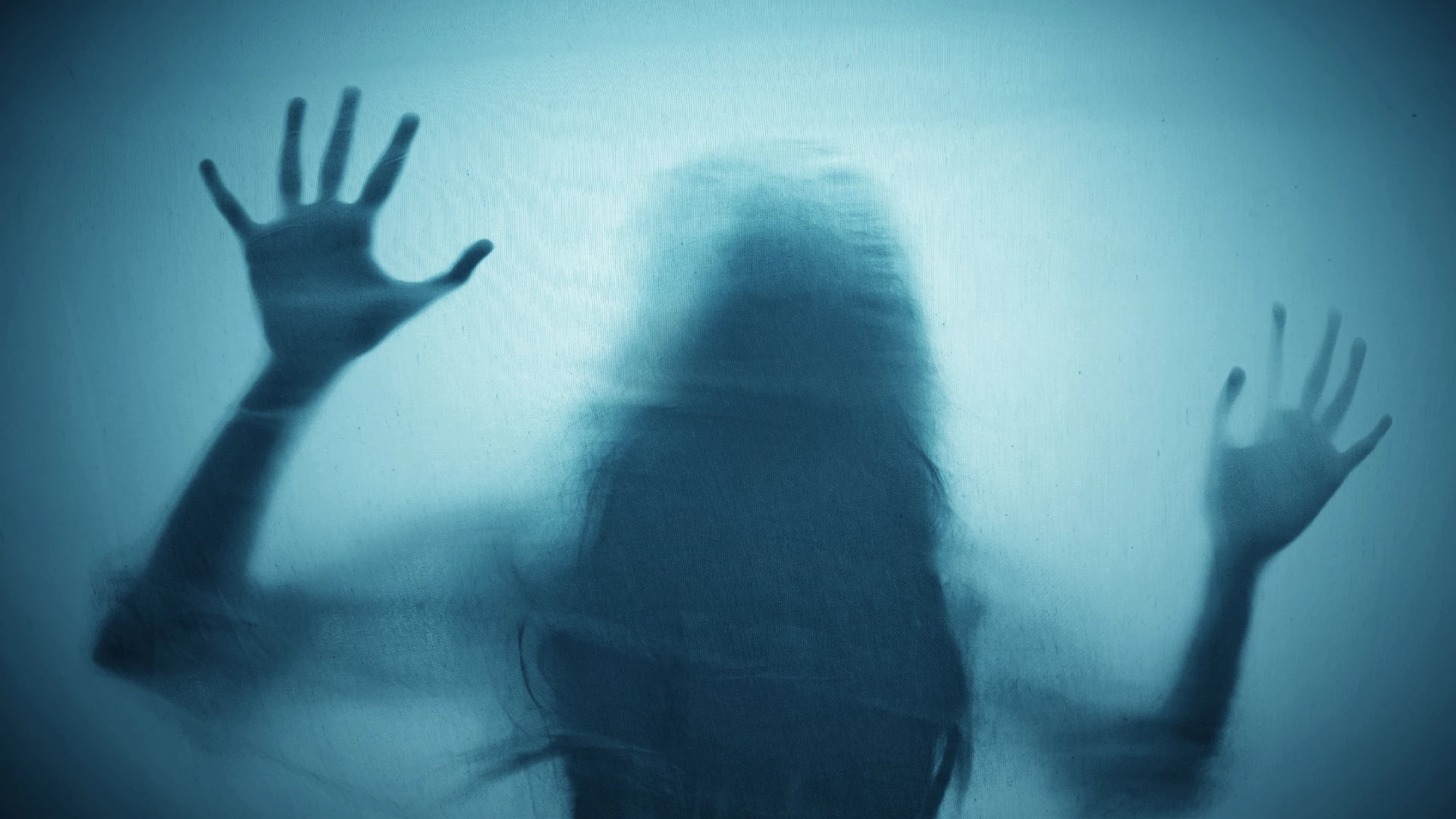 Perhaps one of the most intriguing aspects of our zombie obsession is its longevity. The undead have been a staple of horror for centuries, with roots tracing back to Haitian folklore. From the early days of Bela Lugosi’s “White Zombie” (1932) to the present, they’ve remained a constant presence in our culture. The fact that zombies continue to captivate and terrify us is a testament to their enduring appeal.
Perhaps one of the most intriguing aspects of our zombie obsession is its longevity. The undead have been a staple of horror for centuries, with roots tracing back to Haitian folklore. From the early days of Bela Lugosi’s “White Zombie” (1932) to the present, they’ve remained a constant presence in our culture. The fact that zombies continue to captivate and terrify us is a testament to their enduring appeal.
In a world filled with countless forms of entertainment, the enduring obsession with zombies is nothing short of remarkable.
From the thrill of the unknown to the cathartic release of fear, zombies tap into our deepest desires and anxieties. They reflect the societal concerns of their time, provide a canvas for apocalyptic fantasies, and evolve to keep us engaged. Moreover, our fascination with zombies transcends borders, connecting people worldwide through a shared love for the undead.
So, why are we obsessed with zombies?
The answer lies in the complex interplay of psychology, history, and culture. As long as humans seek adventure, catharsis, and a reflection of their world in their entertainment, zombies will continue to haunt our screens, pages, and imaginations. Embrace the fear, for the undead are here to stay, and they are as captivating as ever.
Unleash the Undead: Explore Zombie Realms in a New Tab!










